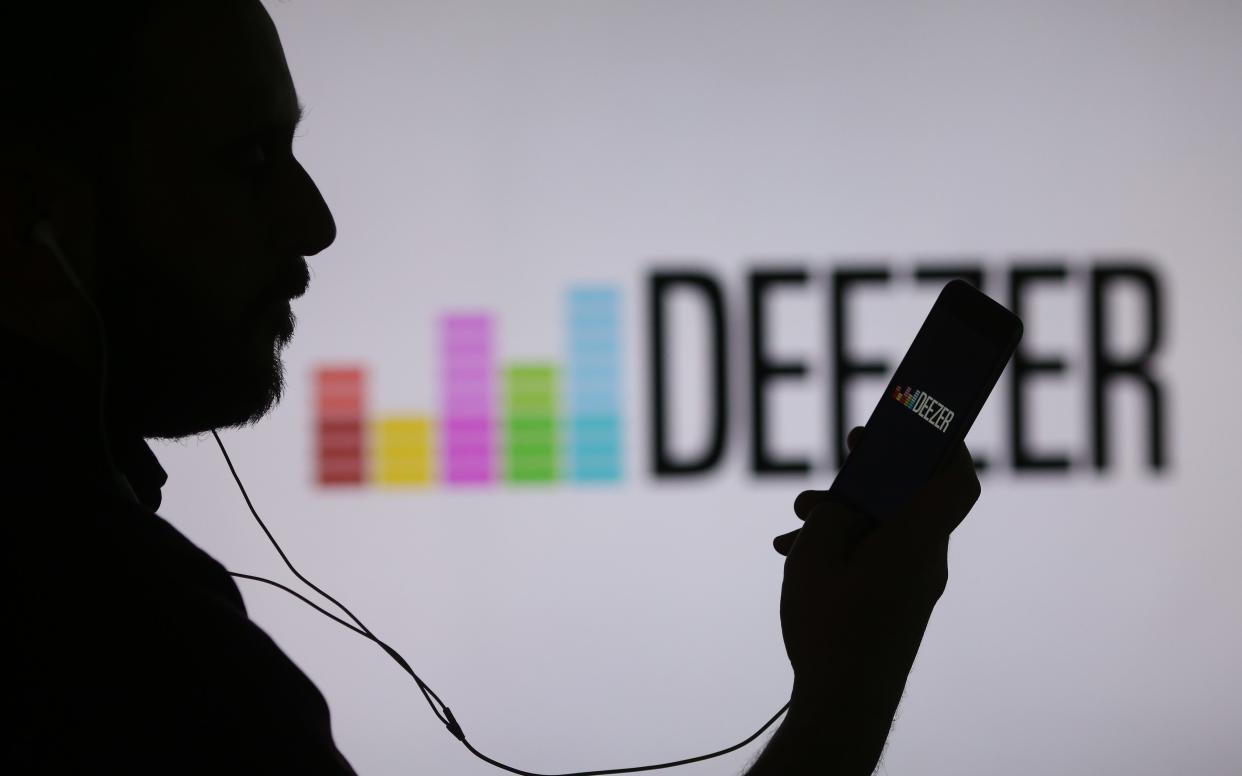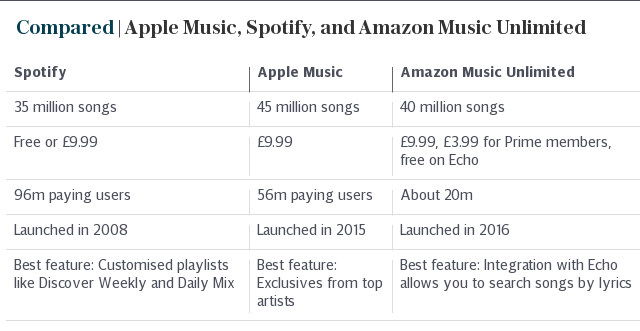Spotify-rival Deezer looks to emulate giant's success

Music streaming was once dismissed by the mainstream music publishing industry. It was a hangover of piracy and viewed as a way to cheat them out of revenues. Yet this year’s hottest listing was that of Swedish giant Spotify, which floated valued at $30bn (£21bn) on the New York Stock Exchange.
It is also a tech field perhaps uniquely pioneered by European companies. One such Spotify-rival is Deezer. Headquartered in Paris, the company is hoping to challenge the dominance of Spotify and show there is room for more than one player in music streaming.
But in one of the most hotly contested technology tickets out there, Deezer, like the others in Spotify’s wake, has to prove it is not just an also-ran.
Despite the May downpour outside, sat in Deezer’s start-up style London office chief executive Hans-Holger Albrecht is upbeat. “Everyone sees a huge opportunity when it comes to streaming,” he says, “people have talked about a $60bn dollar market and the traditional music market was never bigger than $20bn.”
While Deezer may play second or third fiddle to Spotify in most markets - aside from France where it is the largest provider - it has been boosted by the general uplift Spotify’s bumper listing gave to the sector.
“Clearly the Spotify IPO helped to crystalise values,” Mr Albrecht adds.
The 54-year-old German is a broadcasting veteran, serving as chief executive of Swedish telecoms groups MTG and then Millicom. He made the switch to Deezer in early 2015, which at the time was preparing its route towards a €300m (£263m) potential float in France.

Deezer’s revenues were around €140m, broadly comparable to rival Spotify. But with tech giant Apple, with its long pedigree in the music industry, launching Apple Music that year, investors were uneasy.
Since then Spotify has grown into a beast, ballooning to 70m paying users. Deezer, meanwhile, only has around 6.5m paying users and 14m monthly users.
Clearly the Spotify IPO helped to crystalise values. People believe in the market.
Hans-Holger Albrecht, Deezer
But a €100m cash injection from investors Access Industries and telecoms group Orange in 2016 gave Deezer a new boost after it pulled its plans to go public. Revenues have grown to €300m, with losses of around €60m. Albrecht says without marketing costs it would be breaking even.
But there is stiff competition. Not only Spotify and Apple (40m subscribers) but giants such as Google, with its new YouTube Music, and Amazon Music. Facebook, too, is thought to be eyeing the music business.
There are also smaller players trying to corner a niche. Tidal, launched by rapper Jay-Z, focuses on exclusive tracks from artists such as Kanye West and Beyoncé. SoundCloud, which has around 140m users, is mostly free and relies on amateur and user-created music rather than labels, but has struggled to make money.
Deezer’s differentiator is local music. “We have a market-by-market approach,” Albrecht says. Deezer has focused on France and Germany, but has also had success in eastern Europe and Brazil. It has also expanded into services such as podcasts.

In 2017 it controlled around 4pc of music streaming subscribers. Spotify dominates with close to 40pc, while Apple Music has around 17pc and Amazon around 10pc.
But its slow growth is partly due to its old strategy – bundling its app and subscriptions with telecoms providers. Spotify, meanwhile, went after consumers and encouraged sharing and networking. It also tackled the US early on, creating a viable challenger to Apple Music.
“Part of Deezer’s challenge is to show why you would choose them instead,” says Gregor Pryor, a music industry expert at law firm Reed Smith. “It’s a good time to be in this business,” adds eMarketer analyst Paul Verna, “but Deezer doesn’t have the deep pockets.”
Albrecht admits the challenge they faced after the abandoned initial public offering.
Capital from Access has given them more time to grow. “Back then we didn’t have the leverage,” he adds. “When I joined three years ago it was time to change it, to change the philosophy.”

There could well be consolidation as well as growth. Tidal has come under criticism for allegedly inflating plays on certain soundtracks, according to Norwegian newspaper Dagens Næringsliv (Tidal is also based in Norway). The company denies the allegations.
And not everyone is confident about Deezer. “Differentiation from Spotify is crucial for its competitors,” notes GlobalWebIndex analyst Chris Beer. “The question remains whether [Deezer’s] local success is enough.”

Hardware could also play a big role in streaming’s future. As Amazon and Google invest in their smart speaker technology, it is important for rivals to keep their apps on hardware platforms. Albrecht admits Deezer toyed with the idea of its own hardware, but has since moved to ensure it is partnered on all major smart speakers.
Albrecht is certainly proud of Deezer’s product, but pragmatic about its future. A fresh float could be two or three years away, but there are no plans yet as to where or when. He also says the company doesn’t plan to sell, but notes “there will be consolidation in the market, there is always a chance and we are an attractive asset. We will see, but we are not here to sell.”
But he remains confident. The key formula has been combining different strands of the industry, from a subscription base to a record company to a technology outfit. It’s a complicated business, but Albrecht thinks it’s working.
“You need to be innovative. We think we can stay on par with the big guys,” he says.

